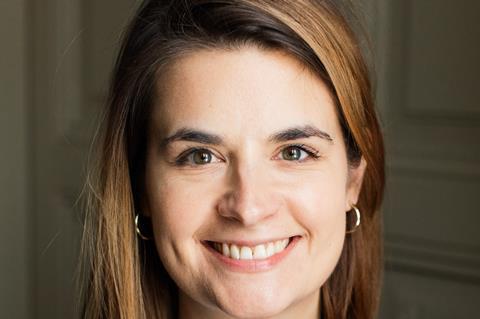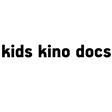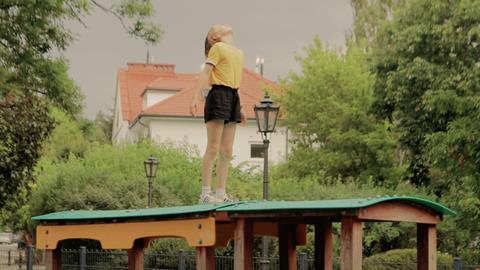Documentaries aimed at children and young people, rather than simply about them, are rare but Polish-Norwegian programme Kids Kino Docs (KKDOCS) believes there is an unmet demand for real-life stories that inspire, educate and entertain.
Dedicated to fuelling the development and production of documentary films and series aimed at young audiences, KKDOCS is the brainchild of Poland’s New Horizons Association, which runs the Young Horizons International Film Festival in Warsaw, as well as New Horizons Film Festival in Wrocław, and American Film Festival in Wrocław, and is involved in distribution and education in schools .
“We believe in the educational power of documentaries,” says Zofia Horszczaruk, head of industry projects at Young Horizons. “Documentaries for children is a genre that needs special support from the industry. Film education and audience education are among the cornerstones of Young Horizons’ work.”
KKDOCS provides emerging filmmakers with an opportunity to develop projects for young audiences with international documentary film professionals.
The programme was launched in 2022 as an extension of the Kids Kino Lab script development workshops. It is a Polish-Norwegian partnership supported by the financial mechanism known as the EEA and Norway grants and the Polish Ministry of Culture and National Heritage in partnership with South Norwegian Film Centre., and the aim is for it to grow further internationally.
Two editions have taken place to date, with the second concluding in September 2023. Each 15-month edition is comprised of four in-person workshops in Poland and Norway that combine individual and group sessions with masterclasses led by industry experts.
The filmmakers work on a variety of aspects including shaping their ideas, research, film prep, shooting and editing. All stages are supervised by experienced tutors from the film industry led by Kirsten Bonnén Rask and Paweł Ziemilski. The programme also includes masterclasses led by acclaimed filmmakers and experts such as Danish editor and director Anders Refn (whose credits include Antichrist), Christina Ramsø Thomsen, commissioning editor, New Danish Screen, and directors Jon Bang Carlsen, Ilze Burkovska Jacobsen and Kenneth Elvebakk.
Eleven projects have participated so far. Poland’s Aga Borzym is an alumnus of KKDOCS first edition. Her feature film Girls’ Stories details two years in the lives of two friends,11-year old Jagoda and 13 year-old Zuzia. The film bears witness to the pair’s long talks and reflections on growing up, love, boys, adults and what it means to be a woman. Girls’ Stories premiered at Millennium Docs Against Gravity Film Festival in Poland and is screening next at Young Horizons Film Festival later this year.
Individual consultations with editors gave Borzym the confidence she needed to make the film. “Anders helped me find the initial structure of the film,” says Borzym, who credits Refn with helping her to dispel “many uncertainties related to my project.”
Małgorzata Wabińska brought the mid-length Patterns Of Being to KKDOCS’ second edition. Described as an art project inspired by science, the interactive documentary takes a young viewer into the digital world to understand the process of listening, perception and experience.
“Participation in such programmes sets the rhythm of work. What matters is what is done, what is seen on the screen, what is shot, and not only what is in the creator’s head or exists only on paper,” says Wabińska of what she learned.
Norway’s Nora Nivedita Tvedt participated in the first edition with feature Animal Tails, about a 13-year-old girl in Lillehammer whose family is rocked by her brother’s death from suicide and her mother’s cancer diagnosis. The film focuses on the importance of her love of and friendship with her pet dog.
“I don’t think I would have come this far in such a short time without this programme,” says Tvedt. “It pushed me to test out different things and work.”

Horszczaruk acknowledges the challenges faced by documentaries in the international marketplace and emphasises the vital platform that festivals such as Young Horizons give these films. “TV stations and distributors need more courage to invest more in this format,” she says. “Fortunately, documentary festivals enjoy a lot of prestige and garner a lot of international attention.”
Norwegian filmmaker Oyvind Aamli’s Armed With Drums is taking part in the second edition. His feature-length documentary portrays 12 -year old Bruno who lives goes to live with his grandparents in a favela in Rio de Janeiro after the death of his mother and departure of his father. Bruno is mentored by a neighbour, bar owner and experienced drummer who takes him under his wing and nurtures his own burgeoning drumming talent.
“The organisers and mentors created a safe space to be creative from the get-go,” Aamli says. “This helped me to discuss all the aspects of the project openly, which has benefitted the project’s growth in the past year.”
Aamli’s mentor, Paweł Ziemilski, helped him to discover his strengths and weaknesses as a director. “Listening to and being able to ask questions to filmmakers such as Line Hatland and Jon Bang Carlsen was also really inspiring,” Aamli says.
He believes documentary “has the ability to go deeper and feed an appetite in young people that’s already there to connect, learn and be wowed.”
It is an ethos shared by the KKDOCS team “A documentary has the power to capture key moments in history, snippets of worlds unknown to us, all shown in the language of real people,” says head of industry Horszczaruk. “There is a saying that life writes the best scenarios.”
Kino Kids Docs is co-financed by the EEA Financial Mechanism and the Polish Ministry of Culture and National Heritage.
The organisers are now looking for partners to help organise and co-finance the next edition.
















![[L-R]: Amanda Villavieja, Laia Casanovas, Yasmina Praderas](https://d1nslcd7m2225b.cloudfront.net/Pictures/274x183/6/4/1/1471641_pxl_20251224_103354743_618426_crop.jpg)











No comments yet